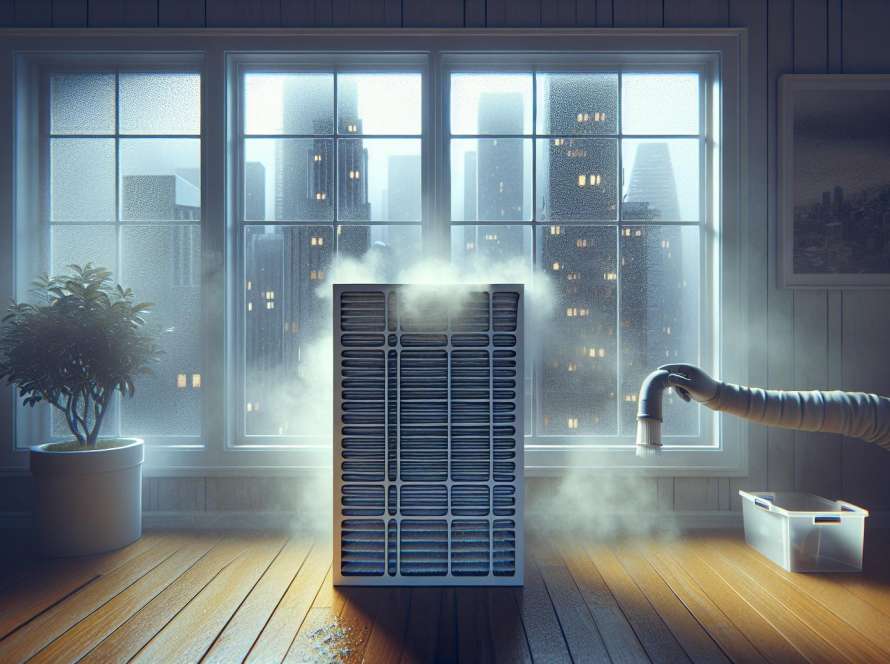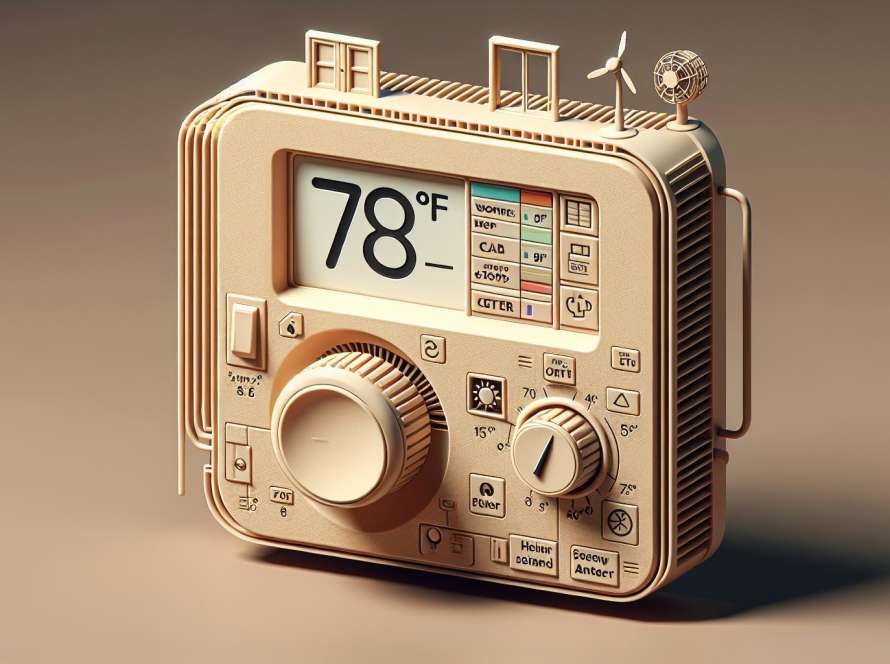Living in Florida means we rely heavily on our air conditioning systems to keep us cool and comfortable, especially during those scorching summer months. To ensure our AC units are running efficiently and effectively, regular maintenance is key. From checking and changing air filters to cleaning the condenser coils, there are several essential tasks that we should stay on top of to prevent breakdowns and costly repairs. In this comprehensive Florida Climate AC Maintenance Guide, we’ll walk you through the steps to keep your AC system in top-notch condition all year round.
With the high humidity levels and frequent thunderstorms in Florida, our AC units work overtime to maintain a pleasant indoor environment. Neglecting routine maintenance can not only lead to decreased performance but also impact the lifespan of our air conditioning systems. By following the tips and guidelines outlined in this guide, we can proactively address common AC issues and ensure that our units are operating optimally, even in the face of Florida’s challenging climate. Let’s dive in and equip ourselves with the knowledge and tools needed to maintain our AC systems effectively.
Importance of Regular AC Maintenance in Florida
In the Florida climate, AC maintenance plays a crucial role in ensuring your system operates effectively and efficiently.
For Novices: Getting Started with Basic Maintenance
- Change or clean air filters monthly to improve air quality.
- Keep outdoor units clear of debris to prevent obstructions.
For Intermediate Users: Enhancing AC Performance
- Schedule annual inspections with a professional technician.
- Check ductwork for leaks and insulate them properly.
- Consider upgrading to a programmable thermostat for energy efficiency.
- Perform regular coil cleaning to optimize cooling capabilities.
Remember, adhering to a consistent maintenance routine can extend the lifespan of your AC system and save you from costly repairs in the long run.
Checking and Changing Air Filters

For Beginners: Basic Maintenance Steps
- Check air filters monthly to ensure they are clean.
- Replace air filters every 1-3 months, or as recommended by the manufacturer.
- Use high-efficiency filters to improve air quality and system efficiency.
- Turn off the system before replacing filters to prevent damage.
- Label filter replacement dates to help track when it needs changing next.
For Intermediate Users: Enhancing Efficiency
- Consider upgrading to electrostatic filters for better dust and allergen filtration.
- Evaluate MERV ratings to choose filters that suit your air quality needs.
- Schedule professional HVAC inspections to ensure filters are properly installed.
- Vacuum air vents and surrounding areas for optimal airflow.
- Explore smart thermostats that remind you when to change filters.
For Experts: Advanced Filter Maintenance
- Invest in HEPA filters for superior air purification.
- Implement UV air purifiers for added germicidal protection.
- Conduct air duct cleaning to remove accumulated debris.
- Consider whole-house air filtration systems for comprehensive air quality control.
- Monitor indoor air quality regularly to assess filter performance.
| Air Filter Maintenance Statistics | |
|---|---|
| Average lifespan of air filters | 1-3 months |
| Energy savings from clean filters | Up to 15% |
| Percentage of HVAC failures due to dirty filters | 50% |
| Annual cost of neglecting filter replacement | $50-$1000+ |
Cleaning the Condenser Coils
One crucial aspect of Florida climate AC maintenance is keeping the condenser coils clean to ensure optimal performance and energy efficiency. Regular maintenance of the condenser coils can extend the lifespan of your air conditioning system and prevent costly repairs. Here’s a detailed guide on how to clean the condenser coils based on your expertise level:
For Beginners: Basic Cleaning Steps
- Turn off the power to the AC unit.
- Remove debris and dirt using a soft brush or vacuum.
- Use a gentle coil cleaner spray to clean the coils.
- Rinse with a garden hose and let it dry completely before turning the power back on.
For Intermediate Users: Enhance Efficiency
- Consider using a fin comb to straighten any bent coil fins for better airflow.
- Inspect the area around the condenser for vegetation or debris and clear if necessary.
- Schedule regular maintenance checks with a professional HVAC technician for thorough cleaning and inspection.
- Invest in a coil cleaning solution specifically designed for deep cleaning.
- Use a coil fin straightener for precise fin alignment.
- Consider installing a coil protection coating to prevent dirt buildup.
Regularly cleaning the condenser coils not only improves AC efficiency but also contributes to better indoor air quality. By following these maintenance tips, you can ensure that your air conditioning system performs optimally, especially in the Florida climate.
Dealing with High Humidity Levels
Addressing high humidity levels is crucial in maintaining optimal AC performance in Florida’s climate. Excessive moisture in the air can strain the system and lead to inefficiencies. Let’s explore strategies tailored to different levels of experience:
For Beginners: Controlling Humidity at Home
- Install a Dehumidifier: A simple way to reduce humidity levels and lighten the load on your AC.
- Use Exhaust Fans: Ensure proper ventilation in kitchens and bathrooms to prevent moisture buildup.
- Seal Leaks: Check for and fix any leaks or gaps in windows, doors, or ductwork to keep humidity in check.
For Intermediate Users: Fine-tuning Humidity Management
- Set Thermostat Correctly: Optimal indoor humidity levels should be between 30%-50%.
- Regular Maintenance: Keep AC filters and coils clean to enhance dehumidification efficiency.
- Consider Smart Controls: Invest in a programmable thermostat to regulate humidity levels effectively.
- Invest in a Whole-House Dehumidifier: Works alongside your AC system to manage humidity throughout the home.
- Upgrade to Variable-Speed AC: Enhances dehumidification capabilities through more controlled airflow.
- Utilize UV Lights: Install UV lights in the air handling unit to reduce mold and bacteria growth in humid conditions.
Managing humidity levels effectively not only improves AC performance but also enhances indoor air quality, ensuring a comfortable living environment in Florida’s climate.
Proactive Maintenance Tips for Long-Term AC Health

For Beginners: Getting Started on the Right Foot
- Change your air filters regularly, typically every 1-3 months, to maintain good airflow.
- Keep the area around your outdoor unit clear of debris to prevent airflow blockages.
- Schedule annual professional maintenance checks to ensure your AC system runs efficiently.
For Intermediate Users: Stepping Up Your Maintenance Game
- Program your thermostat to reduce energy consumption when you’re away from home.
- Clean your AC coils annually to prevent dust and dirt buildup.
- Consider installing a smart thermostat for better control and energy savings.
- Invest in a UV air purifier to enhance indoor air quality and combat mold and bacteria growth.
- Upgrade to a variable-speed AC system for improved efficiency and comfort.
- Install a whole-house dehumidifier to maintain ideal humidity levels for your AC system.
| Fact | Data |
|---|---|
| Average lifespan of AC systems | 10-15 years |
| Energy savings with a smart thermostat | Up to 23% |
| Efficiency increase with variable-speed AC systems | Up to 30% |
Conclusion
Maintaining optimal humidity levels is crucial for efficient AC performance in Florida. From basic tasks like changing air filters to advanced investments in UV air purifiers and variable-speed systems, we’ve covered a range of maintenance tips for all users. Remember, proper care not only extends the lifespan of your AC but also leads to energy savings and improved indoor air quality. By following these guidelines, you can ensure your AC system functions at its best, providing a comfortable living environment in Florida’s unique climate.

